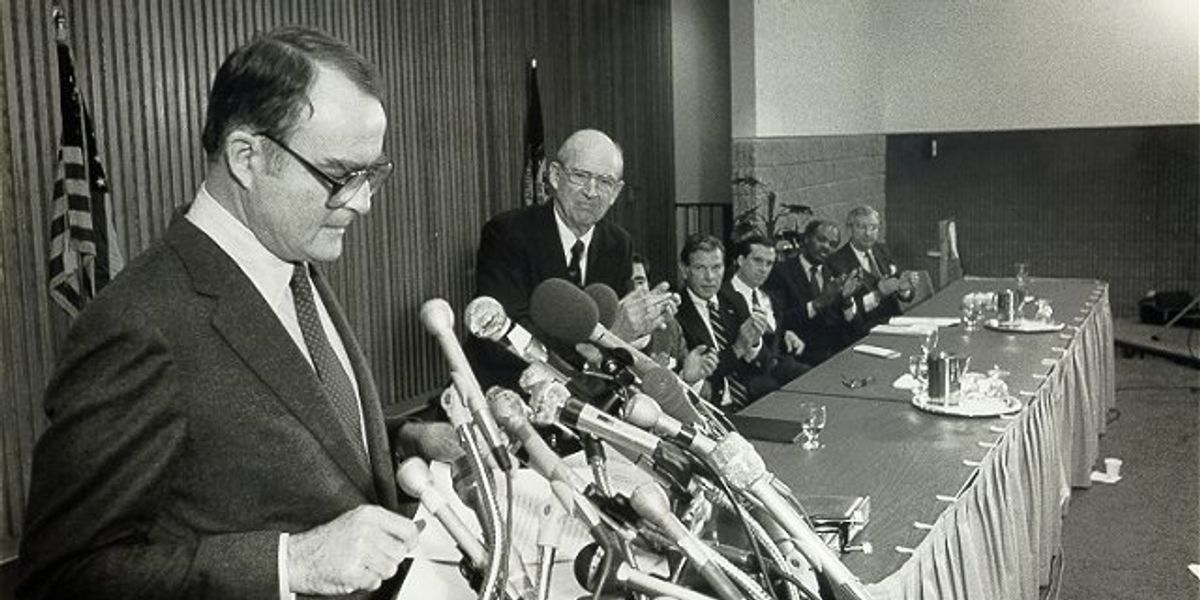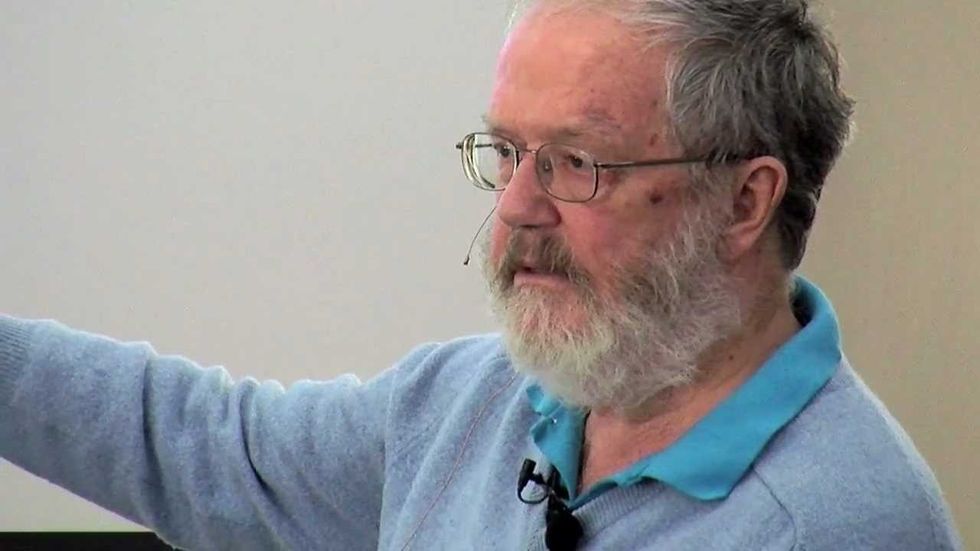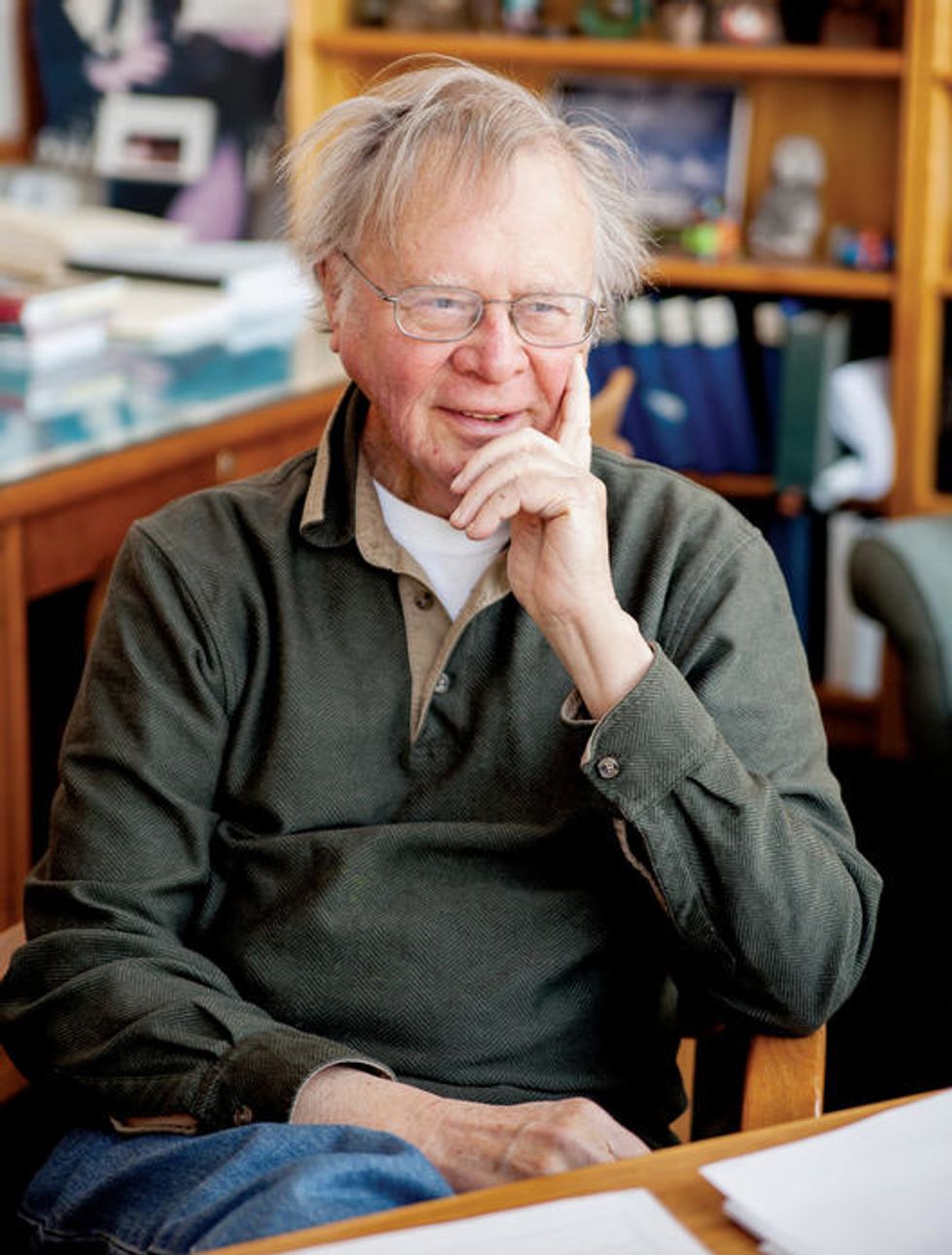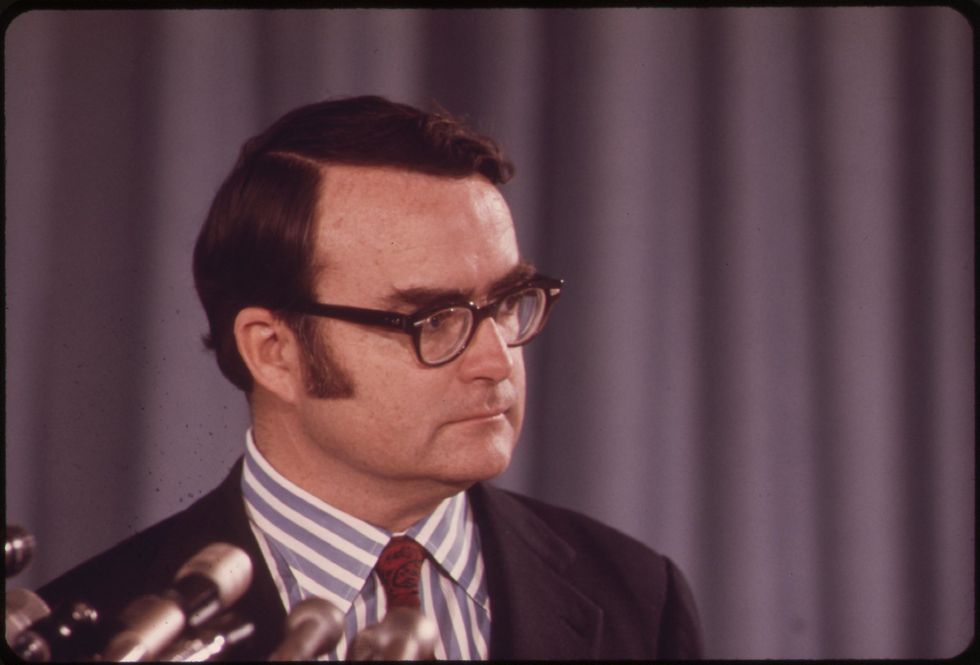
Remembering those lost this year who left their mark on our planet
2019 saw the deaths of many notable people from environmental politics, science and advocacy.
A look back at those who passed away in 2019 that—for better or worse—impacted our planet.
Norman Myers, 85, was a groundbreaking environmental scientist who offered some of the first alarming calculations on the demise of the Amazon rainforest.

He popularized the idea of biodiversity "hotspots" and challenged the "perverse" role that some government subsidies play in simultaneously harming ecosystems and local economies. A passionate marathon runner, Myers once ran a 36 mile, 13,000-foot climb up the slopes of Mount Kilimanjaro and back down again in under 14 hours.
Marvin Weitzman, 77, was an environmental economist whose work highlighted the uncertainty of climate science – with the proviso that "we know enough to act."
Walter Munk, 101, "The Einstein of the Oceans" developed techniques for measuring ocean temperatures and sea level rise and helped lead the Scripps Institute of Oceanography to world-class status.

Wally Broecker (Credit: Columbia College)
Known as "The Grandfather of Climate Science," Wally Broecker was 87. His landmark 1975 paper introduced the concept of global warming to an international audience.
Don Melnick, 65, Columbia University conservation biology scholar and author, renowned for his engaging teaching style.
Darryl D'Monte, India's pioneering environmental journalist, 75; and Robert A. Jones, 74, the first environment reporter at the Los Angeles Times.

Indigenous women march, August 2019. (Credit: Apib Comunicação/flickr)
While the final toll is not yet known, the murder of indigenous environmental activists continues in Latin America and elsewhere. In November and December, four members of the Guajajara tribe were murdered as they resisted rampant logging in the northeastern Brazilian state of Marinhao.
Janette Sherman, 89, toxicologist and public health advocate. She was an early go-to expert on the health effects of exposure to radiation and pesticides.

William Ruckelshaus, first administrator of EPA, May 1972. (Credit: US National Archives)
William Ruckelshaus, 87, first Administrator of the U.S. Environmental Protection Agency (EPA) in 1970. He was re-appointed to the position in 1983 as the agency recovered from the scandal-plagued reign of Anne Gorsuch. As Deputy Attorney General in 1974, he resigned rather than comply with President Nixon's order to fire Watergate Special Prosecutor Archibald Cox. The lifelong Republican later criticized EPA's anti-regulatory turns during the George W. Bush and Trump Administrations.
Douglas Costle, 79, who helped create EPA, then became its Administrator under President Jimmy Carter, 1977-1981. He ran the agency when the Love Canal tragedy thrust toxic waste site cleanup onto the national agenda.
Lyndon LaRouche, 96, fringe politician and frequent U.S. Presidential candidate who spun elaborate conspiracy tales about, among other things, the world narcotics trade being controlled by Queen Elizabeth and the World Wildlife Fund.
Tim Means, 75, pioneer in eco-tourism and campaigner to protect Baja California.
Chris Cline, 60, latter-day coal baron who railed against what he saw as repressive pollution regulations, died in a helicopter crash with his daughter and two others.

Trudy the gorilla. (Credit: Al Notter/flickr)
Trudy, 63, a lowland gorilla believed to be the oldest in captivity died in the Little Rock, Arkansas Zoo.
Steve Sawyer, 62, led Greenpeace International in the late 1980's and 1990's, then led the Global Wind Energy Council (GWEC) as a central force in the clean energy sector.
Chuck Cushman, 75, who died in the final days of 2018, was a garrulous gadfly, raising hell with the National Park Service, Bureau of Land Management, the Forest Service, and other federal agencies that he saw as threatening private property rights. A former landowner within the boundaries of Yosemite, Cushman was a leader in the 1980's Sagebrush Rebellion. He helped whip some Western communities into an anti-regulatory frenzy, earning the nickname "Rent-a-Riot" from his detractors.
David Koch, 79, whose family oil business made him one of the world's richest men. With his brother Charles, he bankrolled conservative and libertarian candidates and groups, and is credited/blamed as a major player in the rightward turn in Congress, federal agencies, state houses, and the White House.













